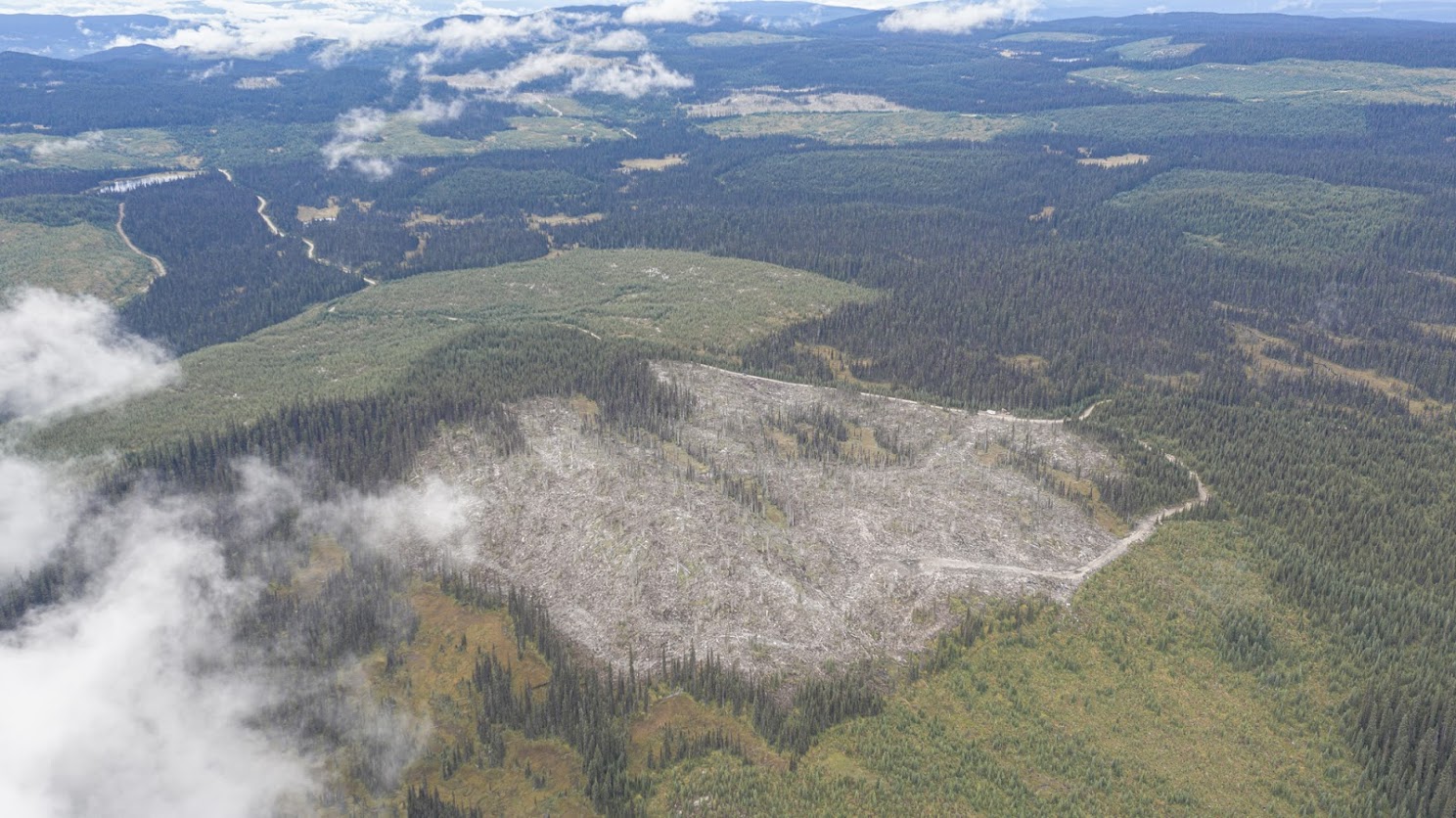Op/Ed: Caribou numbers crashing; Tŝilhqot’in Nation alarmed
Southern BC has lost all or most of its formerly numerous wild mountain caribou. Populations are crashing in the BC central interior as well. The Western Canada Wilderness Committee points out that they “were once so numerous that an entire region of BC is named after them. The Cariboo in the central interior of BC was given its nickname by mid 19th-century gold seekers who were amazed at the abundance of southern mountain caribou. These days southern mountain caribou numbers are so low, few people who live in the Cariboo have ever seen one.
“The government of Canada has designated this population caribou as threatened. They have mapped the forest habitat that southern mountain caribou needs for their survival and eventual population revival. However, the government of BC has continued to issue permits to logging companies to cut these habitat forests down.”
Now, the Tŝilhqot’in Nation is dismayed at the rapid decline in mountain caribou populations in their territories, and by the BC government’s refusal to act to save the remnants of the caribou herds. A press release states:
“The Tŝilhqot’in Nation is alarmed by the crashing Mountain caribou populations in the Chilcotin. All three caribou populations in the Chilcotin have been on the decline since 2003.
“The Rainbow caribou herd was estimated to have 40 caribou remaining in 2016. The Charlotte Alplands caribou herd is believed to have already disappeared. The largest herd, the Itcha-Ilgachuz herd, had a population estimate of 2,800 caribou in 2003. This summer the Itcha-Ilgachuz herd is estimated to have 385 caribou, a decline of 86% in 16 years (meaning only 14% of the caribou still remain). At this rate the Itcha-Ilgachuz herd will disappear from the Chilcotin within the next 7 years.
“Canada’s Species at Risk Act lists the Southern Mountain caribou (which includes the Chilcotin herds) as a Threatened Species. The province of British Columbia lists these same caribou as blue, which indicates that BC considers Southern Mountain caribou as a Special Concern. Currently, there is no endangered species legislation in BC, and therefore the Chilcotin caribou are not protected by the Province of BC, which allows for threats to the caribou to continue.
“Given the dire circumstances of caribou, the Tŝilhqot’in National Government (TNG) reached out to propose a formal partnership with the province of BC on herd management where TNG would have been a leading partner. The BC Government declined the request and therefore, the TNG has decided to undertake a caribou herd management plan of our own to address this crisis and will be looking to our neighbors for support.”
Chief Joe Alphonse, Tribal Chair, Tŝilhqot’in National Government, stated: “It’s serious, and a threat to our people. The Tŝilhqot’in have declared a state of local emergency over the salmon crisis, have put restrictions on hunting over the moose crisis and now the caribou are in crisis. Historically, our people relied on caribou as a traditional food source so the continued mismanagement of all these species is just a full assault on our people’s way of life. We aren’t going to sit around and allow the province to continue to mismanage these caribou herds into extinction. We have reached out to BC to be a leading partner on managing these herds and they are not open to it, even though they are clearly failing. We want to take the lead on this and we know we have to get involved so the Tŝilhqot’in National Government will be initiating our own herd management program to do our best to save these herds.”
Otis Guichon, Tŝideldel First Nations Government, added, “The province’s approach to managing the caribou herds has failed us. They are too reactive.”
Some observers may think that the BC government has not even reacted to the crashing of BC’s caribou herds, as it continues to issue permits to destroy the habitat that caribou need for survival. The Western Canada Wilderness Committee website notes that the province has issued permits allowing over 3,000 cutblocks to be logged in southern mountain caribou habitat since 2012.
Some readers may wonder why that’s such a bad thing. Don’t those cutblocks soon begin growing good forage for ungulates? Yes – but not caribou. The “regen” is good for moose and deer, and their increased numbers attract increased numbers of wolves and cougars, which then prey on caribou as well. Especially as roads and the packed tracks of snowmobiles enable the predators to better access country that might otherwise shelter caribou.
Biologist Mark Hebblewhite says that caribou “are old-growth specialists. They feed on lichen that grows only on very old trees. Those forests take centuries to replace.”
So far, BC has done little to protect caribou habitat; it has instead attempted wolf culls, and imposed a few restrictions on snowmobile access in some of the areas where caribou have formerly been able to survive.
And caribou populations continue to crash.


























Comments